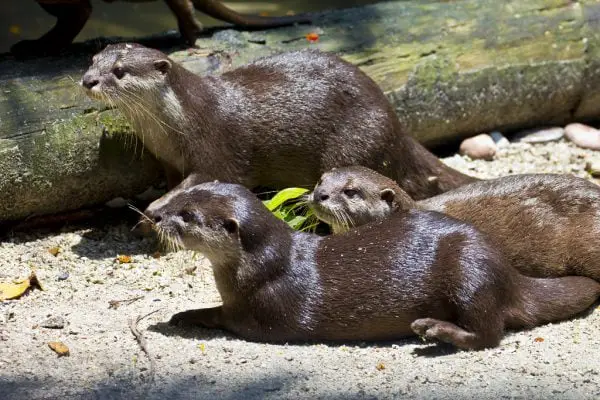With their cunning minds, fiery coats, and elusive nature, foxes have captivated human imagination for millennia. These adaptable omnivores inhabit diverse environments, from bustling cityscapes to sprawling forests. Beyond their striking appearance, their various collective nouns reveal their social dynamics and extraordinary actions.
Collective Nouns for Foxes
Unlike some animals with singular collective nouns, foxes boast a vibrant vocabulary, each term reflecting the specific context and behavior of the group:
- Skulk: This most widely used term signifies a group of foxes, often seen together, particularly when hunting or living in a shared den. It evokes a sense of stealth, cooperation, and the cunning nature of these clever creatures.
Example: As the first rays of dawn painted the sky in hues of orange and pink, a skulk of foxes emerged from their den, their movements silent and coordinated. Their keen eyes scanned the landscape, searching for signs of prey, showcasing their remarkable instincts and cooperative hunting strategies.
- Troop: This term, less common but still occasionally used, describes a group of foxes traveling together, often associated with migration or exploration. It evokes a sense of shared journey, synchronized movement, and the temporary nature of these aggregations formed for specific purposes.
Example: Driven by a thirst for adventure, a troop of young foxes embarked on a journey beyond the familiar boundaries of their territory. Their playful interactions and inquisitive nature highlighted the crucial role of such temporary groups as young foxes learn vital skills and navigate the challenges of independence.
- Leash: This term, rarely used but rich in symbolism, signifies a group of foxes, often associated with their cunning and sly behavior. It evokes a sense of control, resourcefulness, and the ability of these animals to outsmart their prey and competitors.
Example: In folktales and fables, foxes are often depicted as cunning tricksters, leading to the occasional use of the term “leash” to describe a group of foxes. This term, while not as common in everyday language, adds a layer of symbolism and cultural significance to our understanding of these remarkable creatures.
- Earth: This term, specific and rarely used in contemporary contexts, describes a group of foxes living together in a den, often used in historical literature or specialized ecological contexts. It evokes a sense of shared space, family unit, and the importance of the den as a refuge and breeding ground for these animals.
Example: Early historical records occasionally reference finding an “earth of foxes” when describing encounters with these animals and their dens. While this term is not widely used in modern language, it offers a glimpse into the past and the diverse historical perspectives surrounding fox behavior and terminology.
Interesting Facts About Foxes
Understanding these collective nouns deepens our appreciation for the diverse social behaviors and remarkable adaptations of foxes. But venturing deeper reveals their fascinating biology, ecological significance, and the challenges they face:
Masters of Adaptation: Foxes are remarkably adaptable animals, thriving in diverse habitats ranging from dense forests to arid deserts. Their sharp senses, nimble bodies, and varied diets enable them to exploit many resources and live in harsh situations.
Ecological Benefits: Foxes play a crucial role in maintaining healthy ecosystems. By predating on rodents and other small animals, they help to control populations and prevent outbreaks of disease. Additionally, their presence can influence the behavior of other predators, leading to cascading effects within the ecosystem.
Facing Threats: Habitat loss, fragmentation, and human-wildlife conflict pose significant threats to fox populations. Protecting their habitats, encouraging ethical animal interactions, and increasing awareness of their ecological roles are essential to their survival.
Cultural Symbol: Foxes have held a prominent place in various folklore and mythology throughout history. Their cunning nature and adaptability have often been associated with trickery, wisdom, and survival. Recognizing their cultural significance fosters a deeper respect for these creatures and the diverse roles they play in human imagination.
Final Thoughts
From the clever “skulk” tracking its prey to the daring “troop” exploring new territory, foxes’ numerous group nouns reveal their complex lifestyles and lasting appeal. Understanding these words and comprehending these species’ compelling nature deepens our admiration for their incredible adaptations, ecological contributions, and the need to protect them as crucial parts of our natural environment.
Also Read:






